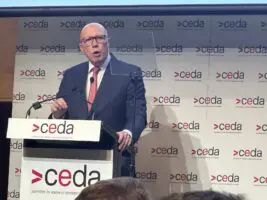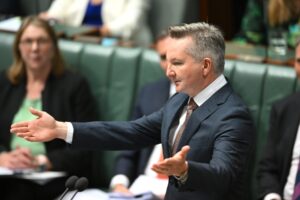“Scientists have warned about the “greenhouse effect” for years. Now it is no longer a scientific nightmare; it has arrived.”
Lines from Al Gore’s famous movie? No.
The Sydney Morning Herald published these words in mid-1988. The article detailed record-breaking heat and drought in North America and elsewhere, linking these weather effects with predictions for global warming and climate change (then called the greenhouse effect).
A review of the Fairfax mainstream and business press of the late 1980s and early 1990s found hundreds of articles focused on the risks posed by the greenhouse effect on topics as diverse as biodiversity and holidaying in the Maldives.
These articles all readily ascribed the cause of the greenhouse effect to industrial societies burning fossil fuels.
The science hasn’t changed, but the public story changed dramatically
I recently completed a study of climate change communication in Australia 1987-2001. I reviewed an extensive public record of news reports, government documents, early popular science books and interviews regarding the greenhouse effect.
I found there has not been a one-way road from lesser to better public knowledge of climate change science and available response in Australia in the last two decades. In fact the opposite has been the case and this is directly linked to the public narrative and framing.
The evidence shows that scientific findings – as documented by the IPCC starting in 1990 – remained basically consistent in their description of cause, risk and the need to respond throughout the 1990s.
However, communication from Australian policy makers and the media changed dramatically during the same period –– from expressing good understanding and a will to take action, to a confused and conflicted debate with clear correlations to the national response.
Almost no-one remembers the high point of good understanding that occurred in October 1990. That was when the Federal Government under Bob Hawke established an interim emission reduction target for the nation to lower greenhouse gas emissions 20% below 1990 levels by 2005.
Detailed state and national response plans were established. They canvassed every strategy known today, from efficiency measures and renewable energy to a carbon tax and emissions trading scheme.
But these plans were destined to wither under national competition policy that deregulated the national energy sector to focus on sales and profits rather than “demand management”.
When our values changed, so did the climate change story
The record shows a pivotal change occurred in social values and beliefs that set the public agenda from the mid-1990s on. Politicians and the press gallery, rather than scientists, more and more determined the daily narrative of what was “real”.
Guiding these values were:
- the narrowed economic options of Australia’s destiny as a resource quarry
- beliefs in the potential for a greenhouse gas techno-fix (such as clean coal)
- beliefs in the fundamental divide between the monetary economy and the natural environment, with the latter framed as a cost.
Underlying are beliefs that humans are exceptional and outside the ecological laws governing other species. Such beliefs are widely held in western Christianity and therefore easy to target with coded language.
In the 1990s we added a panoply of beliefs about markets and their ultimate efficiency (so we could not make industry more efficient), embedded in neo-liberal, economic rationalist teachings.
Disciplinary beliefs also played a role. A notable group has been geologists, many of whom were taught that only on-ground measurement and evidence – not future modelling – is valid. This helped explain the enduring sceptic fervour that has confused the public.
Also influential was the impact of scientists communicating degrees of “scientific uncertainty” in the public arena. This is a concept that lay audiences frequently interpret as “don’t know”, and which greatly aided those who don’t want action.
The frames of climate change: from risk management, to too risky
Climate change up to the early 1990s was framed by politicians of both major parties as risk management for everyone. They focussed on Australia being an ethical global citizen responsible to future generations. Responses were framed as “win-win” for the environment and for new jobs. This reflected international response at the time.
After 1991, Paul Keating – and later John Howard – were preoccupied with the economy. Climate change action went on the back burner in the bureaucracy, eventually completing the transition to “can’t do” under Howard.
The reframed narrative became that Australia is exceptional: if climate change science is real, Australia should commit to minimal response because our economy relies on cheap energy and coal exports and we are not about to change.
Politicians became adept during this period at framing these messages with warm emotional values of nation and family –– evoking “us” against the “them” of greenies, Europeans, and the United Nations. These were portrayed as elites and outsiders trying to rob us of our jobs and businesses.
Understanding the coded language of the changed narrative, how it was done, is a lot about how people take up information, and that is another story that emerged from my study.
While the science findings have stayed consistent since at least 1990, politicians and the media re-framed their communication, and that radically changed public knowledge about climate change and the will to respond. Thanks to this change, Australia has lost 20 years of potential action on emission reduction.
Maria Taylor is associate lecturer, science and journalism, at the Australian National University. This article was first published at The Conversation. Reproduced with permission.









